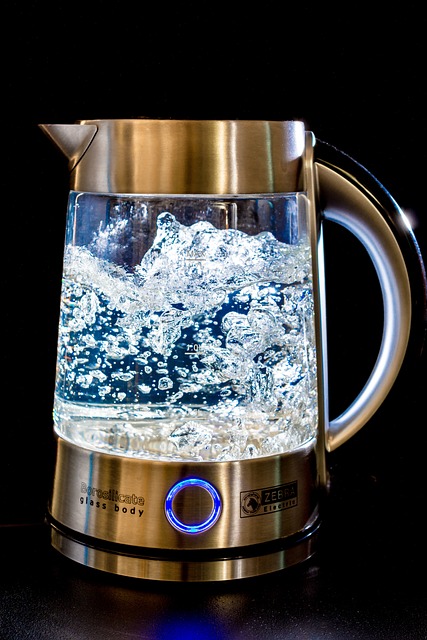Regular water heater maintenance is essential for homeowners to secure reliable hot water access, extend heater lifespan, and avoid costly repairs. Key tasks include visual inspections, cleaning sediment buildup, checking temperature and pressure relief valves, monitoring energy bills, troubleshooting common issues, and seeking professional help for complex problems. Proactive care prevents unexpected breakdowns and enhances energy efficiency.
Maintaining your water heater is essential for ensuring consistent hot water and preventing costly repairs. This ultimate guide delves into the world of water heater maintenance, equipping you with the knowledge to keep your hot water flowing smoothly. From understanding the importance of regular checks to troubleshooting common issues, learn simple yet effective steps to optimize your water heater’s performance and longevity.
- Understanding Water Heater Maintenance: Why It Matters
- Regular Checks and Cleaning: What to Do
- Troubleshooting Common Issues and When to Call a Professional
Understanding Water Heater Maintenance: Why It Matters

Maintaining your water heater is crucial for ensuring consistent hot water access and extending its lifespan. Regular care prevents costly repairs or premature replacements. It’s a simple yet essential task that every homeowner should be aware of. Neglecting this routine maintenance can lead to inefficient heating, reduced hot water availability, and even potential safety hazards.
Water heater maintenance involves several key steps, such as cleaning the tank, inspecting for leaks, checking the temperature settings, and ensuring proper ventilation. By keeping an eye on these aspects, you can avoid unexpected failures and maintain optimal water heating performance. Regular servicing also helps to prevent mineral buildup, which can reduce energy efficiency and cause premature aging of the heater.
Regular Checks and Cleaning: What to Do

Regular checks and cleaning are essential components of water heater maintenance. Start by inspecting your water heater for any signs of corrosion, rust, or leaks. These can indicate serious issues that may require professional attention. Next, clean the sediment buildup at the bottom of the tank, as it not only reduces efficiency but can also lead to potential safety hazards. Use a mixture of vinegar and water to safely remove mineral deposits and dirt. Additionally, check the temperature and pressure relief valve (TPR) for any damage or debris clogging its path. Keep an eye on your energy bills; unusual spikes could signal problems that need addressing promptly.
Troubleshooting Common Issues and When to Call a Professional

If your water heater is not performing optimally, don’t panic. Before calling a professional for water heater maintenance, try troubleshooting common issues on your own. Start by checking if there’s enough hot water pressure and ensuring the temperature settings are correct. A simple reset of the thermostat or flushing out sediment buildup can often resolve minor issues.
However, if problems persist, such as frequent temperature fluctuations, strange noises, or lack of heat despite proper settings, it’s time to consider professional help. Water heater maintenance specialists have the expertise and tools to diagnose complex issues like faulty heating elements, corrosion, or pressure relief valve problems. Regular water heater maintenance is key to avoiding unexpected breakdowns and ensuring consistent access to hot water.
Regular water heater maintenance is key to ensuring consistent hot water and preventing costly repairs. By understanding the importance of routine checks, properly cleaning your heater, and familiarizing yourself with common issues, you can extend its lifespan significantly. Remember, proactive care is always more effective (and less expensive) than reactive repairs. Keep your hot water flowing by implementing these simple yet crucial steps for optimal water heater maintenance.
